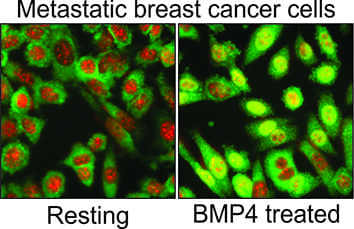The Latest Updates from Bing News & Google News
Go deeper with Bing News on:
Metastatic breast cancer
- More Is Not Always Better: Outdated Drug Dose Strategy in Breast Cancer
The survey-based analysis, published in the Journal of Clinical Oncology, supported this view. The survey, which asked patients with metastatic breast cancer about the toxicities associated with the ...
- Amateur boxers helping knock out cancer will face off at Boston charity event
First-time boxers will step into the ring and get beat up for a good cause at a boxing charity event in Boston Thursday night.
- Researchers identify what drives PARP inhibitor resistance in advanced breast cancer
Researchers at The Institute of Cancer Research, London, have increased our understanding of how a cancer drug called a PARP inhibitor stops working in women with breast cancer that has spread. This ...
- What Is De Novo Metastatic Breast Cancer? Symptoms, Causes, Diagnosis, Treatment, and Prevention
Metastatic breast cancer is cancer that has spread from the breast to other parts of the body, such as the bones, liver, lungs, or brain. Doctors also call this advanced, or stage 4, breast cancer.
- Buy Rating on Zentalis Pharmaceuticals: Strategic Developments and Multi-Cancer Treatment Potential of Azenosertib
H.C. Wainwright analyst Andrew Fein reiterated a Buy rating on Zentalis Pharmaceuticals (ZNTL – Research Report) today and set a price ...
Go deeper with Google Headlines on:
Metastatic breast cancer
[google_news title=”” keyword=”metastatic breast cancer” num_posts=”5″ blurb_length=”0″ show_thumb=”left”]
Go deeper with Bing News on:
Breast cancer
- Researchers identify what drives PARP inhibitor resistance in advanced breast cancer
Researchers at The Institute of Cancer Research, London, have increased our understanding of how a cancer drug called a PARP inhibitor stops working in women with breast cancer that has spread. This research could ultimately help predict who's more likely to respond to these drugs,
- Task force says this is when women should begin breast cancer screening, get mammograms
An influential task force has recommended that women begin mammograms at age 40 and screen every other year for breast cancer until they are 74. The U.S. Preventive Services Task Force's updated guidance, released Tuesday, said women with an average risk ...
Go deeper with Google Headlines on:
Breast cancer
[google_news title=”” keyword=”breast cancer” num_posts=”5″ blurb_length=”0″ show_thumb=”left”]










